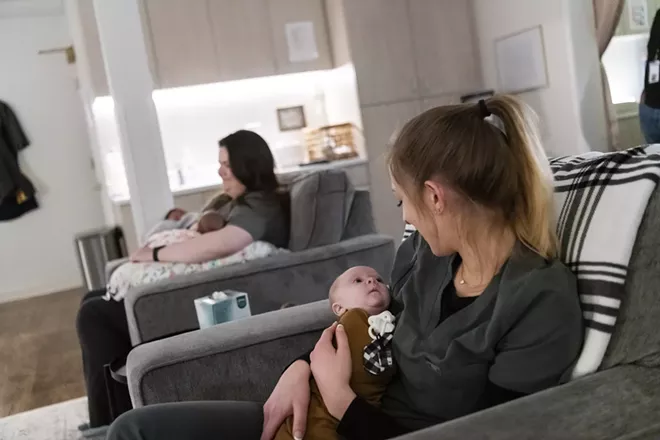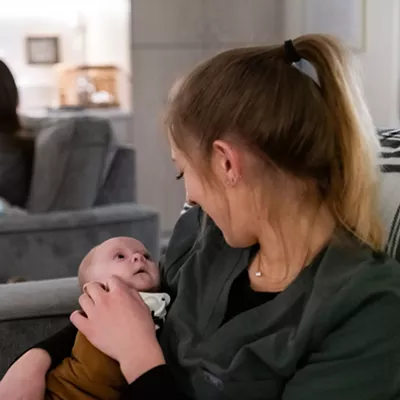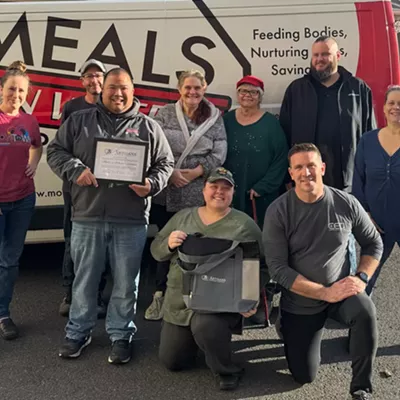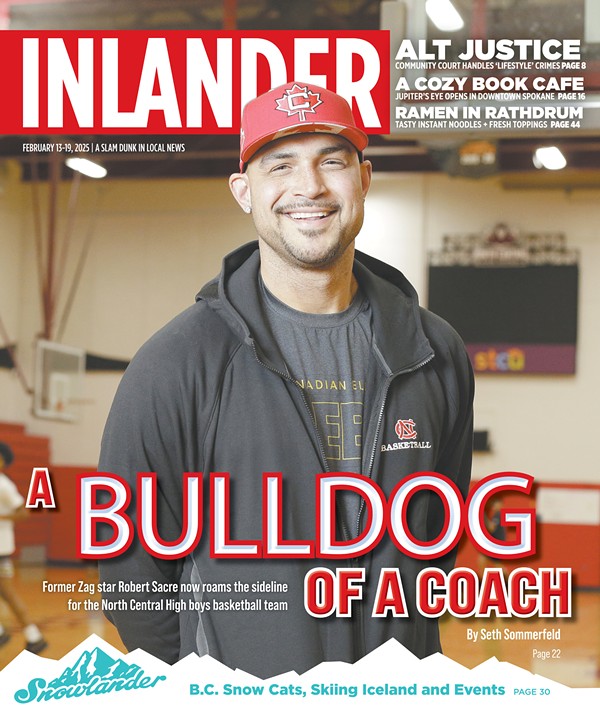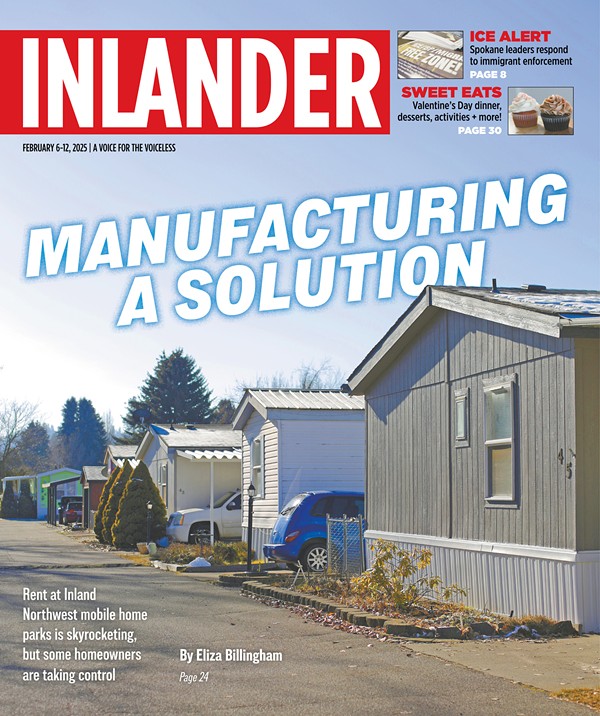With the lights dimmed in a living-room style nursery space, two infant care specialists sit in cushy chairs holding three tiny sleeping babies against their bodies. The infants here, at Maddie's Place in Spokane, were exposed to drugs in utero and suffer from what's known as neonatal abstinence syndrome, or NAS.
Babies with NAS may cry for hours, thrashing as they struggle with withdrawal and recovery. Some sleep nearly constantly. They may refuse to eat or struggle to make eye contact, missing early milestones essential to development.
Maddie's Place offers a new model of care for these babies, uniquely allowing a parent (the mother or father, but not both) to live at the facility with free room and board while their infant is taken care of and assessed by medical staff.
While the baby is helped 24/7, their parent can get help with recovery, appointments and more. Virtually all of the parents who've had a child receive care at the nonprofit were homeless when their child was born, so the staff also helps them secure housing before discharge.
"The birth of a child is such an inflection point," says Shaun Cross, Maddie's Place president and CEO. "These women are really in a horrific predicament with very little support. There's a lot of well-intentioned stuff going on in the medical community, and a lot of great nonprofits and people are trying to do stuff. But it's siloed. It's not coordinated."
Maddie's Place was founded by Tricia Hughes, a local nurse who first began caring for an infant — Maddie — born addicted to opioids in 2008. Hughes and her husband adopted Maddie and four other infants born with NAS, but eventually, her husband told her they couldn't possibly save every child. Instead, Hughes could teach others to provide that care, which includes many hours of holding the infants.
She and Cross partnered in 2017 and set to work fundraising, then buying and renovating a facility to meet strict state standards, and in fall 2022 they opened the doors. Hughes now serves as the clinical director, while Dr. Randi Edwards is the medical director. They help oversee a team of 79 paid staff and 40 volunteers, including 27 nurses, a nurse manager, 40 trained infant care specialists, a full-time social worker, and two peer support staff with lived experience who can help moms get into and stay in recovery.
Cross says a study is underway to prove the approach is both efficient — costing about a fourth as much as other options — and offers better outcomes for the infants, with very little need for medication during treatment.
"The mom, if she's in recovery, is the best medicine for the baby, and the baby is the best medicine for the mom," says Cross. "All of the women who have gone through this program are in custody today of their babies."
Learn more at maddiesplace.org.

